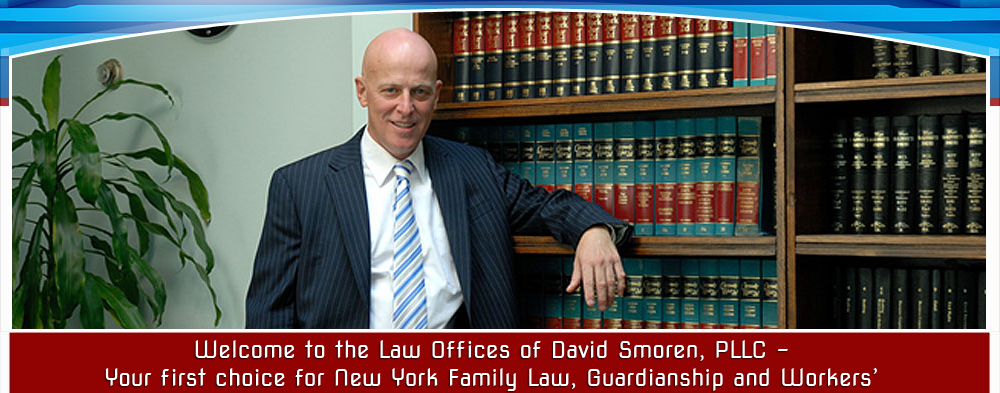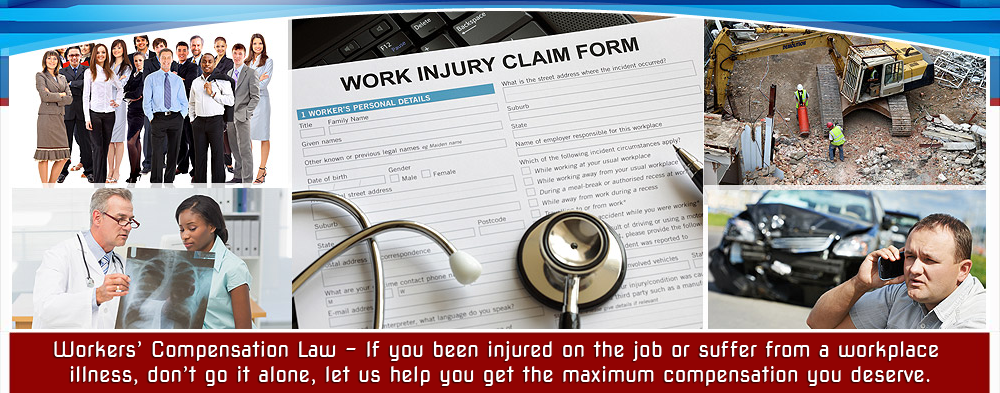Child Abuse and Neglect
A child neglect and abuse case is a civil proceeding brought by a state agency against parents, guardians, and caregivers, accused of neglecting or abusing children. These proceedings are governed by Article 10 of the Family Court Act and are filed exclusively in the Family Court, typically in the county where the children reside.
The agency authorized to file neglect proceedings in New York City is the Administration for Children’s Services, commonly referred to as ACS. Outside of New York City it is usually Child Protective Services or CPS. All neglect matters are heard by a Family Court judge and there is no right to a trial by jury. When the abuse or neglect is severe, there may be concurrent criminal charges filed against the parents as well. Neglect proceeding can ultimately result in: the loss of parental rights and state issued licenses, an order of protection, jail time, loss of employment, employment opportunities and the stigmatization of being placed on a statewide child abuse registry.
Neglect proceedings are very serious proceedings and often result in the temporary placement of the children away from their natural parents until a final determination is made. Courts tend to err on the side of safety until they are presented with reliable evidence that the parents pose very little risk of harm to the children. As such, it is essential that you are represented by an attorney experienced in neglect proceedings that can act quickly to prevent or mitigate potentially disastrous consequences.
Whether you or a loved one are suspected of child abuse or the subject of neglect and/or criminal proceeding, we can help. At the Law Offices of David Smoren, PLLC we have successfully represented numerous parents and guardians who have been accused of child neglect and abuse.
Call us today at 718 225-6700 718 225-6700 for a free phone consultation or to arrange for a comprehensive office consultation to discuss your options or simply post a comment or question on the contact form.
718 225-6700 for a free phone consultation or to arrange for a comprehensive office consultation to discuss your options or simply post a comment or question on the contact form.
Child Abuse and Neglect – The Basics
Procedure
An abuse case typically starts when a written report or an anonymous phone call is received by the protective agency alleging some sort of child abuse. When a case of suspected child abuse or neglect is reported, ACS or CPS will investigate. If there is no determination of imminent risk to the child, the child will remain with the parents, and the case will be further evaluated, resulting in one of three outcomes. First, if the case is classified as unfounded, meaning there is no credible evidence of neglect, the inquiry is over and no action will be taken. Second, the case can be classified as indicated, which means there is some credible evidence of neglect. An indicated case may or may not result in the filing of a neglect petition against the parents. However, even if a neglect petition is not filed, an indicated report will remain on the New York State Child Abuse Registry unless the agency is convinced that the indicated report should be reclassified as unfounded. Notwithstanding, an indicated finding does not mean there has been a determination of neglect, but this classification can have serious consequences.
If the agency determines in the course of their investigation that a child is at imminent risk of harm, the agency is authorized to remove the child even without an initial court order pursuant to Family Court Act Article 1024 (FCA 1024). If the child is removed, the parents are entitled to an emergency hearing seeking the immediate return of the he child and the agency must timely file a petition giving specific written notice to the parents as to what the allegations are against them.
Once a petition is filed, the following procedure takes place.
Court Date
On the initial date in family court, the child protective agency will either consent to the child remaining with the parents or request that the child be placed in foster care during the pendency of the proceeding. If the child remains with the parents, the court will adjourn the case for a fact finding hearing, a status conference or control date. If placement is authorized, the court and the agency will attempt to utilize appropriate family members whenever possible to care for the children.
Emergency Hearings – Return of the Child
If the agency removes a child or requests that the child be remanded to foster care, a parent, guardian or legally responsible person is entitled to an emergency preliminary hearing seeking the immediate return of the child under either FCA §1027 or FCA §1028.
1027 hearings take place when the child has been removed without a court order and no later than one day after the filing of a petition.If a 1027 hearing does not occur, a hearing under FCA 1028 may be requested by the parent, the legally responsible person or their attorney on the initial court date and it must take place within three days of the request. A 1028 hearing cannot be waived, and failure to request a 1028 hearing at the initial court date does not prevent the parents from requesting a 1028 hearing at any time prior to the fact finding hearing.
These hearings require the agency to demonstrate by a preponderance of the evidence that the child would be in imminent risk of harm if left with the parent or caregiver. Failure to show imminent risk will result in the child being returned to the parent.
These hearings are not final dispositions of the case. Testimony is limited and the rules of evidence are relaxed; hearsay evidence is permitted. Pursuant to FCA 1046(c), evidence must be material and relevant in nature.
Should the court rule in favor of the parent or caregiver, the agency is entitled to an automatic stay from any order returning a child to the parent in order to file an appeal, which if filed, is decided on an expedited basis.
The Fact Finding Hearing
The fact finding hearing is the trial before a judge. The agency carries the burden of proving one or more of the allegations of neglect or abuse contained in the petition and also must demonstrate that the allegations constitute abuse or neglect under the law.
Evidence at the Fact Finding Hearing
At the fact finding hearing, only evidence which is material, relevant and competent may be admitted. See FCA 1046 (a). However, there are several statutory exceptions to the normal rules of evidence. Only allegations which occurred on or before the date the petition is filed may be considered by the court. Any factual allegation constituting neglect which took place after the filing date requires that the agency amend the petition.
The agency must prove their case by a preponderance of the evidence. This is a much lower standard than child abuse charges in a criminal proceeding, which is evidence beyond a reasonable doubt. At this stage it is important to note that it is not just a matter of the agency vs. the parent or caregiver, the attorney appointed for the child can also be a formidable adversary brining in additional evidence to bolster the agencies position. Thus it is crucial to know whether or not the attorney for the child will be advocating for or against the agency prior to the hearing.
The Dispositional Hearing
A dispositional hearing occurs only if there has been a finding of neglect or abuse. The purpose of a dispositional hearing is to determine how the neglect case should be resolved. The most common option is issuing an order or protection and returning the child to the parents with supportive services in place and continued ACS supervision. In more severe cases, the child will continue to be placed in foster care until the court is satisfied that the parents pose no further risk of harm. The parents are typically afforded the right to at least supervised visitation with the children during such period of time.
As to supportive services, the court may impose certain obligations on the parents which are intended to correct the situation which lead to the finding of neglect. Services include, but are not limited to, anger management, alcohol, drug and parenting skills classes. Arguably these services are not intended to be punitive in nature.
If the parents fail to cooperate with the recommendations, the agency can file an application to extend the placement of the children in foster care, and even file a new petition to terminate parental rights. On the opposite end, the Court could determine with the consent of the parties, that the parents have demonstrated a positive attitude and enhanced parenting skills and dismiss all findings. A similar outcome could result in a suspended judgment, whereas there is an initial finding of neglect which can be expunged after the parent has satisfactorily completed all required services.
At the dispositional hearing all parties have a right to produce evidence in support of their position. To avoid continued placement of the child, parents and caregivers should be prepared with strong evidence of rehabilitation and an ongoing positive plan for their children’s future. Reports and even testimony from various professionals are commonly utilized during this dispositional phase. The court’s final disposition will be based upon the bests interest of the child in light of the underlying neglect or abuse finding.
At the Law Offices of David Smoren, PLLC we have successfully handled many neglect proceedings that have resulted in the return of the child to the parent with little or no adverse consequences. On numerous occasions we have successfully convinced the New York State Office of Children and Family Service to expunge indicated reports of child abuse and neglect contained in the statewide child abuse registry.
We understand that many cases are deserving of the service provided by the agency, but we are also aware that some of these proceeding are wrongfully brought based upon false information provided by a disgruntled a family member, friend or even a neighbor. If you have been accused of child abuse or neglect, don’t sit idle, immediate and aggressive representation can mean all the difference.
Call us today at 718 225-6700 for a free phone consultation, or to arrange for a comprehensive office consultation to discuss your options or simply post a comment or question on the contact form.









